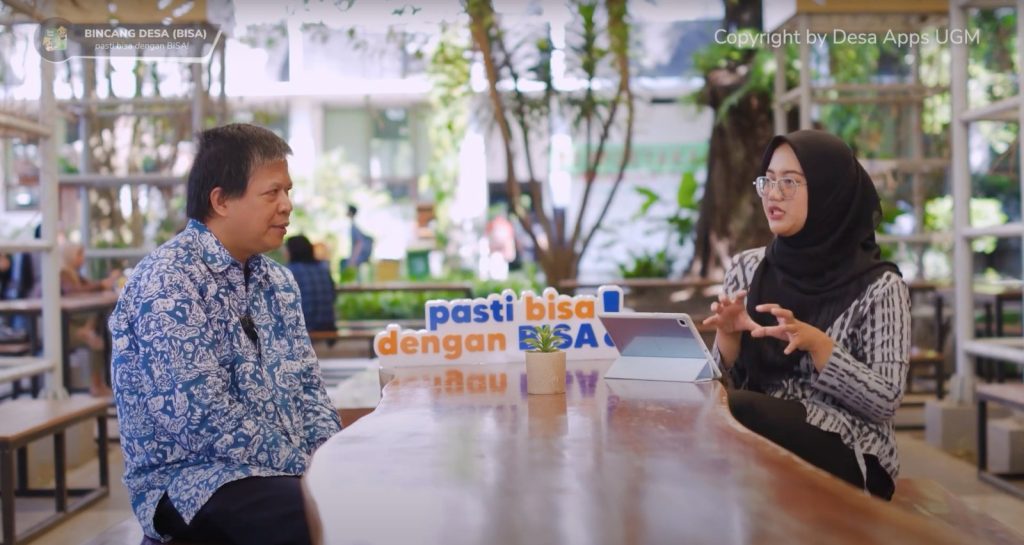The Faculty of Agriculture at Universitas Gadjah Mada (Faperta UGM) has a strong commitment to providing agricultural education and community service. This dedication has been demonstrated through numerous outreach programs across various regions and communities. One of Faperta UGM’s digital initiatives is Bincang Desa, an extension program conducted via YouTube’s Agricia Channel. The latest episode, Bincang Desa #49, focused on the recurring issue of food price inflation during the holy month of Ramadan.
The increase in food prices ahead of Eid celebrations is a well-known annual phenomenon in Indonesia. As Ramadan approaches, demand for staple food items such as rice, eggs, chicken, and chilies surges, leading to significant price hikes in the market. Interestingly, this phenomenon has become widely accepted by the public. To shed light on this issue, Bincang Desa #49 invited Prof. Dr. Jamhari, S.P., M.P., a Professor of Agricultural Economics at Faperta UGM, to analyze the root causes of food price inflation. The discussion, which premiered on YouTube’s Agricia Channel on March 25, 2024, attracted 100 viewers who actively participated in the online session.
The discussion proved to be highly engaging, as Prof. Jamhari provided academic insights into food price inflation.
“The rise in food prices during Ramadan can be attributed to two main factors: cost-push inflation and demand-pull inflation. These factors are closely linked to increased demand and rising production costs of agricultural goods. The extreme surge in demand during Ramadan is often the primary driver of this phenomenon,” explained Prof. Jamhari.
To mitigate the impact of rising food prices, the Indonesian government, along with key stakeholders such as the Ministry of Agriculture, Ministry of Trade, BAPPENAS, and BULOG, has implemented various control measures.
“Additionally, the government has established the Inflation Control Team, which operates at a national level to regulate food prices, including essential commodities like rice, chilies, onions, and other staple foods,” he further elaborated.
Concluding the discussion, Prof. Jamhari emphasized the need for Indonesia to reconsider the value of local food sources such as cassava, sago, and other indigenous crops. These alternatives could support food production and serve as viable substitutes to mitigate dependency on conventional staple foods. Through Bincang Desa #49, it is hoped that communities across Indonesia will embrace local food options to help maintain a sustainable balance between demand and production.
By organizing this event, Faperta UGM reaffirms its commitment to achieving several Sustainable Development Goals (SDGs), including SDG 1: No Poverty, SDG 2: Zero Hunger, SDG 3: Good Health and Well-being, and SDG 8: Decent Work and Economic Growth.
This initiative highlights UGM Faculty of Agriculture’s dedication to educating the public and supporting Indonesia’s agricultural resilience through interactive digital platforms.
Author: Rani Nur Rochim, Agrit Kirana Bunda
Editor: Desi Utami
Photos: Desa Apps UGM

